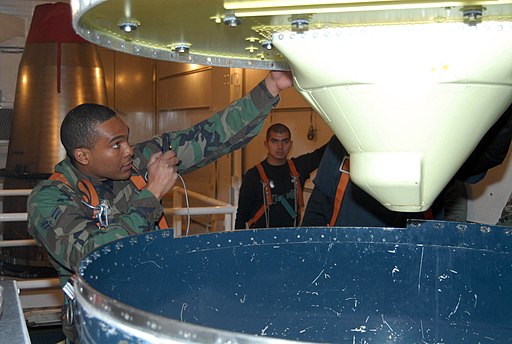Air Force Maintenance Scheduling
Air Force Maintenance Scheduling

Aurora is being leveraged by the US Air Force Global Strike Command (AFGSC) to improve the scheduling of maintenance for the combat-ready forces that conduct strategic nuclear deterrence and global strike operations. Assets involved include ICBMs and all the infrastructure associated with the missiles as well as aircraft, including B-1, B-2, and B-52 bombers. Aurora helps AFGSC optimize scheduling efficiency; this is a challenging problem due to the inherent complexity of the assets, supply chain limitations, availability and training of human resources, and the need to synchronize human and equipment resources.
Considering ICBMs alone, maintenance of a large number of geographically dispersed number of missiles and silos poses significant challenges in terms of achieving the multiple, and in some ways conflicting, goals relating to maintenance and operation costs and desired service levels, including safety. Given the technical sophistication of Air Force ICBMs and their support systems, planning and scheduling of maintenance is incredibly demanding. The impacts of capital equipment downtime, limited availability of specialists required for specific operations, and supply chain issues further complicate maintenance scheduling. Historically, considerable effort has been directed towards developing approaches that help minimize downtime by means of more effective planning and control of maintenance operations, as well as predicting spare-part usage and other resources requirements using forward planning. Many of the early software systems used for these purposes were standalone functional applications—developed based on the concepts of material requirements planning (MRP), project management, and shop floor control—that were often interfaced for overall planning and scheduling purposes. These functional applications are currently available in enterprise resource planning (ERP) software systems as modules. However, ERP solutions with generic functional applications do not provide the full range of functionalities required for the planning and scheduling of more complex maintenance projects.
Aurora is a configurable scheduling engine that enables organizations to plug in components that provide the domain-specific expertise needed for each unique type of scheduling task. As such, customizations are being provided to further benefit AFGSC and to provide greater efficiency to the users of Aurora, that is, the user interface is being adapted to make the AFGSC specific use cases even more streamlined.
Aurora prioritizes tasks by balancing resource capacities with maintenance requirements and constraints. The result is a dynamic schedule that adapts to real-time variability, including emergent work, maximizing throughput. A significant challenge is the scale of the problem and the tangle of inter-related constraints, which make it extremely difficult to resolve conflicts. Aurora is uniquely capable of this massive scheduling challenge. Aurora is a sophisticated scheduling system that combines a variety of scheduling techniques, intelligent conflict resolution, and decision support. The software’s scheduling decisions take into account resource requirements, a variety of constraints, and any pertinent domain knowledge.
Once Aurora has created a schedule, it displays it in a series of graphical images that allow the user to see the scheduled activities, resource allocations and the temporal relationships among the activities. These displays allow the user to edit the schedule directly, intuitively, and easily.